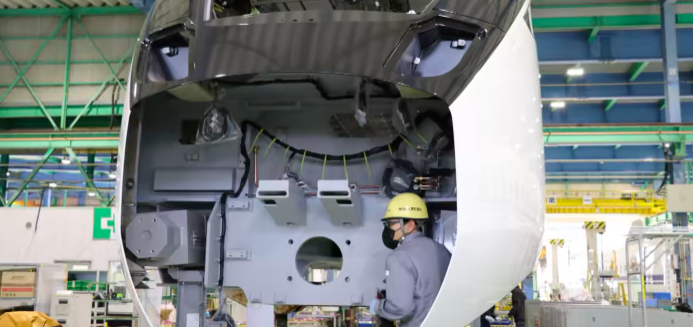Hitachi will use the technology to generate videos depicting difficulties or accidents on railways, plants and factories and use them in virtual training for employees.
ADVERTISING
The manufacturing industry has difficulty transmitting practical knowledge, difficult to put into a manual, to the next generation. As the number of qualified instructors dwindles, Hitachi is trying to simulate the experience of dealing with breakdowns and accidents for younger workers using images created by the AI system.
Prevention of serious accidents
The training space will be a small room measuring just 10 square meters. The walls, ceiling and floor will be covered with screens that project images of infrastructure and factories created by the Generative AI, allowing trainees an immersive experience.
For example, using images of train tracks and rolling stock, maintenance workers can feel as if they are walking through a real location and learn to inspect for anomalies. The system is expected to help improve the skills of maintenance workers, allowing them to learn about many issues that can lead to serious accidents.
ADVERTISING
Problems solution
A generative AI system will also be developed for workers through problem solving. For example, when questioned about what should be done when a certain lamp on an electrical energy safety equipment is flashing, the system aims to explain that there may be an adjustment error in a regulating valve and suggest checking an adjacent meter, marking and explaining it in a virtual space.
Shortage of human resources
The percentage of Japan's population over 65 will exceed 30% by 2030 and there is growing concern that the country's declining birth rate and aging population will result in a severe shortage of human resources. According to an estimate from Persol Research and Consulting and Chuo University, both based in Tokyo, there will be a shortage of 6,44 million workers by 2030.
In preparation for the retirement of veteran employees, Hitachi is considering “enabling employees to experience past failures and realize them in a simulated way, so that the know-how can be passed on to the next generation.” according to a representative of Advanced AI Innovation Center da empresa.
ADVERTISING
Read also
* The text of this article was partially generated by artificial intelligence tools, state-of-the-art language models that assist in the preparation, review, translation and summarization of texts. Text entries were created by the Curto News and responses from AI tools were used to improve the final content.
It is important to highlight that AI tools are just tools, and the final responsibility for the published content lies with the Curto News. By using these tools responsibly and ethically, our objective is to expand communication possibilities and democratize access to quality information. 🤖





